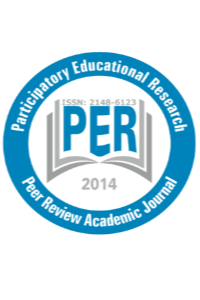
Participatory Educational Research
Yazarlar: Mustafa ERGÜN
Konular:Eğitim, Bilimsel Disiplinler
Anahtar Kelimeler:Educational research,Data mining,Text mining,Coding,Concepts map,Reliability
Özet: Today there are many specialized ways of data storing and retrieving. Photographs, movies, articles and other similar data can be stored in electronic settings. Given that such storing provides hugh opportunity, it is called information explosion. Search engines scan the related data based on the keywords given by the internet users; based on the data gathered by firms they offer sale proposals. There are computer programs offer users the related texts via internet; these are also used by websites. Internet users’ data through emails, messages shared via social media such as facebook and twitter can be analysed for security and terrorist threat purposes. In scientific research there are many search engines, including GoPubMed in the field of biomedicine. In short, the computer-assisted text analysis has become widespread which provide search opportunities using different technological ways and software. The data in libraries and in digital settings are mostly in the form of the unstructured texts, audio and visual files. These data should be transformed into information for researchers. This topic is significant for novice research techniques. Therefore, new computer software is needed to analyse these data correctly and systematically. In educational research the use of text-, audio- and visual-based data has become frequent in recent years. In parallel to this change new techniques have appeared in regard to such data. On the other hand, there are different analyses for audio and textual data and for visual (film and photographs, etc.). The use of text mining has been expanding. For instance, it has been used for customer relationship management. Public institutions also use it to reveal fake data. It may analyse illness reports, economical reports, and unpublished research. Terrorism, aggravated theft, criminal offenses can be traced using text mining technique. In text mining uncovering patterns is similar to factor analysis. In this technique patterns in texts are uncovered using computers. Similar to the analysis of frequency, correlation and significance in qualitative research techniques, the frequency of words used in a text and connectedness (correlations and connection) are identified. The other goal is to have visual representations of these data. In text analysis it is possible to reveal the feelings, views of individuals which can also be done on audio and photograph data sets. In all scientific research the basic requirements are strong measurement, clean data sets which are error free and structured. The reliability of the study results is based on these qualities of the data. It is thought that text mining will be easier in future, because the Web 3.0 technologies, also called semantic web, would analyse texts and objects in internet together with their meaning. In other words, the texts would be put into Internet after the use of text mining. Metadata vocabulary groups (ontology), groups of words and concepts (maps) will be ready in texts. The basic aim of the Web 3.0 technology or semantic web is to make data usable and connected information. The Web 3.0 technology would assume the role of assistant that knows everything. In present period when search engines are used only websites containing the related words are listed. When the Web 3.0 technology or semantic web is used, the engines will interpret the websites and only related websites will be offered. The Web ontology language will be standard and it identifies common vocabulary or terminology. The resource description framework (RDF) will be put in files containing vocabulary hierarchy and the correlations of the objects.